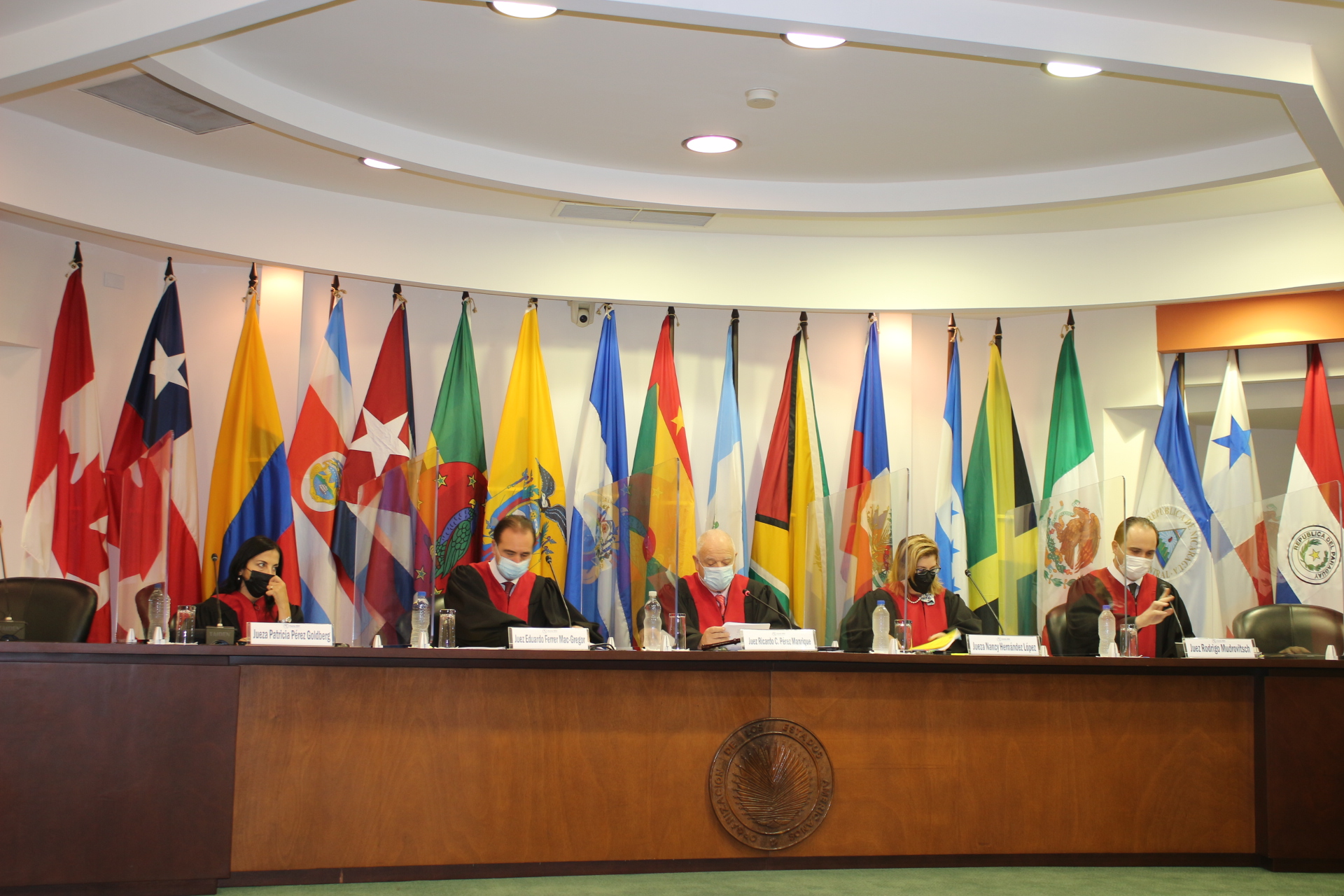A special focus on human rights defenders in Latin America was the theme of an ISHR side event held during the Human Rights Council on Tuesday 6 March.
 The event marked the launch of the Inter-American Commission on Human Rights’ (IACHR) Second Report on the Situation of Human Rights Defenders in the Americas. The IACHR Rapporteur on the Rights of Human Rights Defenders, Mr José de Jesús Orozco, and the IACHR Executive Secretary, Mr Santiago A. Canton were hosted by ISHR in Geneva to present the report.
The event marked the launch of the Inter-American Commission on Human Rights’ (IACHR) Second Report on the Situation of Human Rights Defenders in the Americas. The IACHR Rapporteur on the Rights of Human Rights Defenders, Mr José de Jesús Orozco, and the IACHR Executive Secretary, Mr Santiago A. Canton were hosted by ISHR in Geneva to present the report.
It follows up on the IACHR’s 2006 report on the same subject, and highlights an increase in assassinations, extrajudicial executions and enforced disappearances of human rights defenders in the region. It shows this problem to be particularly true in countries where democratic rule is interrupted, where there is internal armed conflict, or where clashes occur between defenders and organised crime groups or powerful economic actors.
Mr Orozco said the new report is structured into four parts: (1) problems faced by human rights defenders in the region; (2) human rights defenders at particular risk; (3) independence and impartiality of justice operators as a guarantee of access to justice; and (4) protection mechanisms for human rights defenders.
Mr Orozco said the protection of human rights defenders is fundamental to the protection of human rights in the continent. He pointed to problems such as legal measures that criminalise the work of human rights defenders, and other forms of arbitrary control of human rights organisations, as being among the biggest challenges faced by defenders in Latin America. He also highlighted evidence of impunity and impartiality in judicial processes, and reiterated the need for better, more transparent and more consistent investigations to counter these problems.
The ISHR side event also featured the United Nations Special Rapporteur on human rights defenders, Ms Margaret Sekaggya, and Executive Director of the Colombian Commission of Jurists, Mr Gustavo Gallon.
Ms Sekaggya and Mr Gallon spoke about a newly launched ISHR report on the situation for human rights defenders in Colombia. The findings are the result of research into whether recommendations made by the Special Rapporteur have been effectively implemented in Colombia, following her visit to the country in 2009.
Ms Sekaggya said Colombia is a very difficult environment for human rights defenders. Her report in 2009 had highlighted cases of illegal surveillance, illegal arrest and detention, judicial harassment, human rights organisations’ premises being raided and records stolen, together with violence and other threats. Many violations had been attributed to guerrillas and paramilitary groups, or the acts or neglect of the Colombian authorities.
Two years later, ISHR’s report shows that some positive steps have been taken by the Colombian Government: such as public statements by officials recognising the legitimacy of the work of human rights defenders; the work of the ‘National Guarantees Roundtable’ and the issuance of new decrees aimed at reforming and strengthening the protection programme for human rights defenders.
However, Ms Sekaggya highlighted that there are still many obstacles for human rights defenders in Colombia. The ISHR report shows preventative measures have not been satisfactorily implemented, mainly due to the lack of knowledge by local authorities of official national policies in regard to human rights defenders, and the lack of appropriate action on early warnings by the Ombusman’s Office.
The report also found that the National Guarantees Roundtable process was insufficient; that illegal wiretapping of human rights defenders conversations was continuing; and that criminal investigations into violations against defenders had produced few, if any results.
Ms Sekaggya highlighted the need for the Colombian Government to increase its human and financial capacity to deal with these problems, including through the establishment of a permanent unit dedicated to this.
Mr Gallon said 55 human rights defenders in Colombia had lost their lives in 2011; 49 of them murdered, and six disappeared. This presented an increase in lives lost compared to previous years. In addition, some 140 threats against defenders had been recorded.
He added that paramilitary groups, though no longer recognised by the Government as existing, were still very much active and had grown in number since the Special Rapporteur’s 2009 report. The Government’s lack of recognition of these groups – now simply referred to by the State as ‘criminal gangs’ – means it cannot adequately address the threat they present to human rights defenders.
Mr Gallon highlighted the responsibility of the State to ensure the protection of human rights defenders, including through ensuring that protection mechanisms and justice were effectively managed.
At the side event Ms Sekaggya also presented preliminary findings following her visit to Honduras. The discussion was also opened to the floor for additional comments and questions.
 The panel discussion was moderated by ISHR Director Mr Bjorn Pettersson, who expressed satisfaction that the panelists and the reports had drawn Human Rights Council participants’ attention to the plight of defenders in the Americas, a region not sufficiently highlighted in the Human Rights Council context.
The panel discussion was moderated by ISHR Director Mr Bjorn Pettersson, who expressed satisfaction that the panelists and the reports had drawn Human Rights Council participants’ attention to the plight of defenders in the Americas, a region not sufficiently highlighted in the Human Rights Council context.
He said transitions to democracy and the end of several conflicts in the region, coupled with the existence of an effective regional human rights system, have left the human rights situations of most Latin American countries off the priority list of concerned Human Rights Council members and observers.



